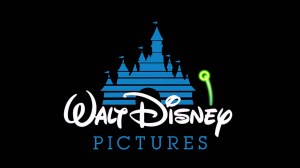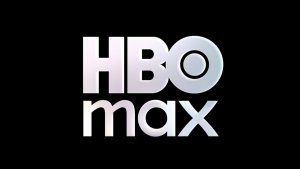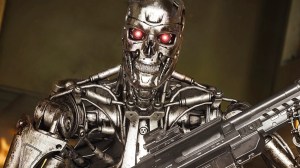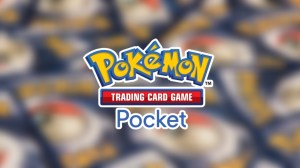In 2013, hot on the success of The Avengers, Marvel Television launched its first series, Agents of S.H.I.EL.D., on ABC.
Videos by ComicBook.com
The series was developed in part by Avengers director Joss Whedon, and put fan favorite Marvel Cinematic Universe character Agent Phil Coulson, once again played by Clark Gregg, in the lead role.
And yet, despite the series’ apparent pedigree and three ABC renewals, Agents of S.H.I.E.L.D. has been the frequent target of sneers and dismissive criticism.
On one side, there’s the hardcore Marvel fanbase who looks down on Agents of S.H.I.E.L.D. for not featuring enough big names from the Marvel Universe. On the other side, there’s the growing superhero television fanbase that looks down on Agents of S.H.I.E.L.D. for not having as many costumed characters as The Flash or Arrow.
As Agents of S.H.I.E.L.D. prepares to enter its fourth season, the criticisms are now about how Marvel could “waste” Ghost Rider on Agents of S.H.I.E.L.D., and they’ve never sounded so foolish.
Agents of S.H.I.E.L.D. is as good of a genre fiction series as exists on television right now and its one of the best things about the Marvel Cinematic Universe.
Complaints that Agents of S.H.I.E.L.D. doesn’t feature enough superheroes are fundamentally flawed.
Agents of S.H.I.E.L.D. takes place in a superhero universe, but it was never intended to be a superhero show. The original tagline for Agents of S.H.I.E.L.D. was, “Not All Heroes Are Super,” which should have been a clue. Criticizing Agents of S.H.I.E.L.D. for not focusing more on superheroes is poor criticism because it’s penalizing Agents of S.H.I.E.L.D. for not being a fundamentally different show, rather than criticizing it based on its own merits and flaws.
You might as well criticize Game of Thrones for not having more elves or The Walking Dead for not having vampires and werewolves.
Agents of S.H.I.E.L.D isn’t a show about superhumans, it’s a show about humans reacting tobeing forced to coexist with superhumans. Agents of S.H.I.E.L.D. is a natural continuation of the Nick Fury vs. the World Security Council subplot from The Avengers, where the two sides argue about what the proper response to an alien invasion is. S.H.I.E.L.D. as an organization, at its core, is the embodiment of that reaction. S.H.I.E.L.D. is baseline humanity’s attempt to make sense of and bring order to an increasingly extraordinary world.
That point of view is important because it anchors the Marvel Studios films in something greater than their individual narratives. Two or three times a year, fans are treated to a god’s eye view of the Marvel Cinematic Universe, as Ultron, a malevolent robot, or Loki, the trickster god, attempt destruction on a catastrophic scale, and those stories are great. However, Agents of S.H.I.E.L.D. provides them with a larger context that lends them greater meaning. Checking with Phil Coulson’s team every week on Agents of S.H.I.E.L.D. reminds audiences that the events of Marvel Studios film don’t take place in a vacuum, but in a universe inhabited by others.

Agents of S.H.I.E.L.D enhances the experience of the Marvel Cinematic Universe, but it also has its own independent worth. Agents of S.H.I.E.L.D‘s earliest episodes served to introduce viewers to characters they’d grow to love but were otherwise slow, safe, sci-fi procedural affairs. Agents of S.H.I.E.L.D. was greenlit based on the potential seen in the “Item 47” Marvel One-Shot short film and those early episodes emulated that short on a formulaic level. It wasn’t until the Hydra reveal in Captain America: The Winter Solder that Agents of S.H.I.E.L.D. began firing on all cylinders. The collapse of S.H.I.E.L.D. as a public institution forced Agent of S.H.I.E.L.D. out of its safe episodic space. It evolved into a series that is still firmly rooted in superhero science fiction, but is also part spy thriller and maintains a sharp focus on character relationships.
Like any network drama, Agents of S.H.I.E.L.D.‘s lifeblood is its cast of characters. Agent Coulson already existed in the Marvel Cinematic Universe, but has grown from affable everyman to a leader struggling with being a father figure to his team and having to make tough decisions as the director. Skye was introduced as a thin audience cipher but has become the Marvel Cinematic Universe’s Daisy “Quake” Johnson, a young, female action hero in the Whedon tradition that would make Buffy Summers proud. Agent Melinda May began as another Whedon archetype, a warrior woman in the style of Zoe from Firefly, but has grown by confronting her personal and professional demons. Leo Fitz and Jemma Simmons have been forcibly pushed out of their ivory towers, and it’s been fascinating to watch them adjust in different ways. Following the reveal of Grant Ward as a Hydra spy, Ward became one of the best villains the Marvel Cinematic Universe has produced so far, arguably second only to Loki.
And the Agents of S.H.I.E.L.D. cast, while beginning conservatively, has grown more diverse with each season. Agents of S.H.I.E.L.D. began with May, played by Chinese-American actress Ming-Na Wen (as well as Skye/Daisy, played by half-Chinese actress Chloe Bennet) and has since added African American actor Henry Simmons as Mack in a series regular role, now as Coulson’s field partner. Agents of S.H.I.E.L.D. has also featured important minority recurring characters, including Yo-Yo Rodriguez (Elena Rodriguez) and Joey Guitierrez (Juan Pablo Raba), both members of Daisy’s Secret Warriors, and the upcoming introduction of Ghost Rider Robbie Reyes (Gabriel Luna).
As the cast has grown, both in number and in depth, so has the show’s willingness to experiment with style and technique. The show has featured some inventive action scenes, particularly fight scenes that place the audience in a first-person perspective, and the Season 3 episode, “4,722 Hours,” was a stunning departure from Agent of S.H.I.E.L.D.‘s house style that remains an outstanding episode by any standards. It’s even had its share of emotional gut punches, including the death of Rosalind and the Bobbie Morse and Lance HUnter’s “spy’s goodbye.”
In truth, what some see as Agents of S.H.I.E.L.D.‘s greatest weakness is actually its greatest strength. By being a show about new characters, it is forced to become a series bold enough to invent rather than simply to adapt. Agents of S.H.I.E.L.D. is a strong series that doesn’t deserve the flak it gets from hardcore fans. Any Marvel fan who isn’t watching Agents of S.H.I.E.L.D. is missing out on one of the best parts of the Marvel Cinematic Universe.
Agents of S.H.I.E.L.D. Season 4 premieres Sept. 20 at 10 p.m. on ABC.









